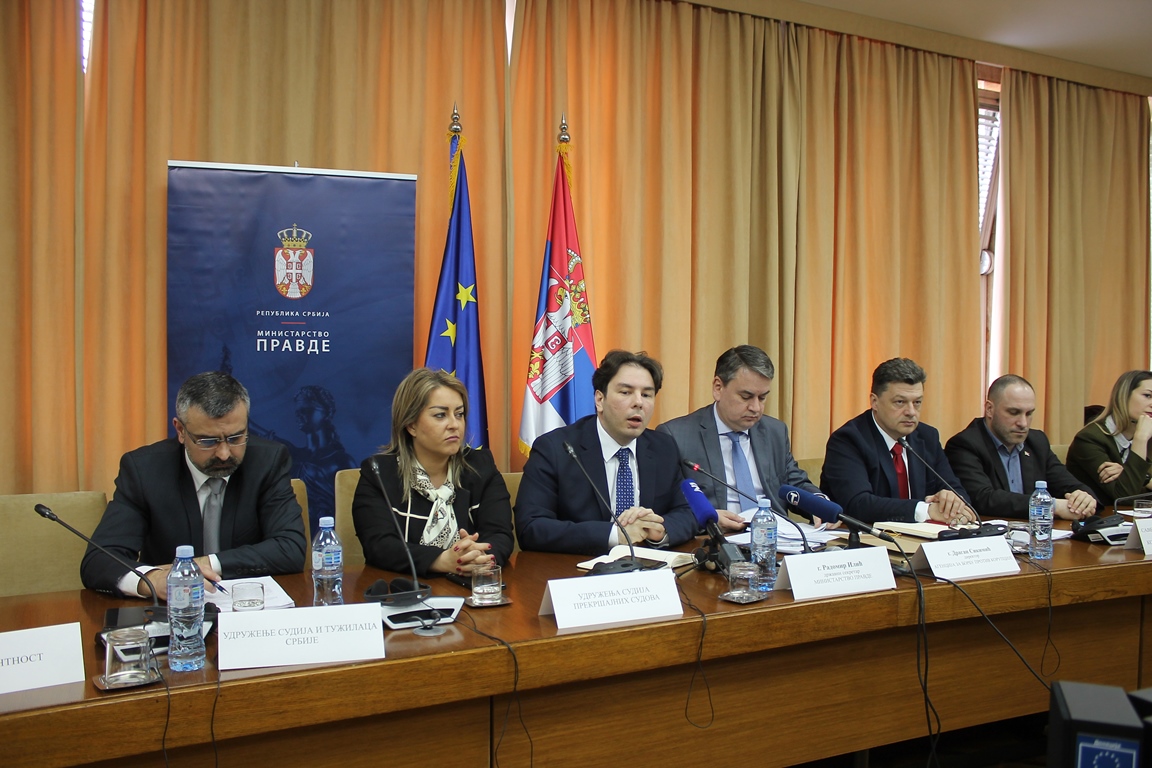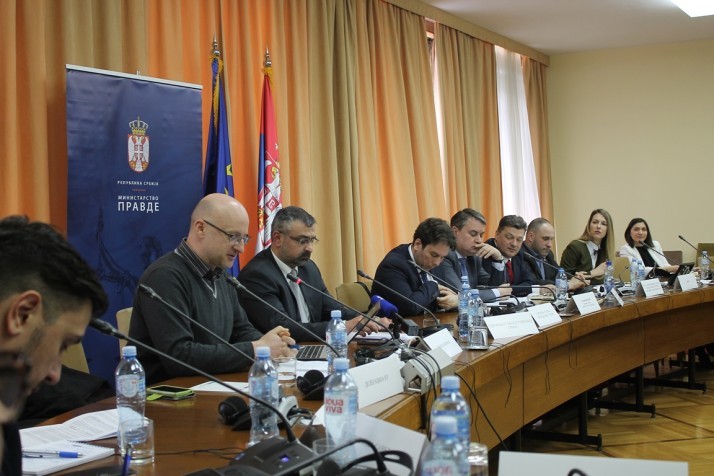A round table was held today organised by the Ministry of Justice where a new Draft Corruption Prevention Act (which is to replace the Anti-Corruption Agency Act) was presented to representatives of the civil sector. It was explained that the draft Act expanded the purview of the Anti-Corruption Agency, strengthened its independence and provided for a new organisational setup of this institution.
State Secretary in the Ministry of Justice Radomir Ilić stated that the proposed new structure of the Agency ensured a merit-based selection of the Director and Board members where only expertise, skills and integrity would be taken into account. “The Director is elected in a competitive recruitment procedure. Such person has to pass an anti-corruption knowledge test and a test of integrity and to present his/her programme for the Agency”, Ilić stressed.
He added that such legal solution absolutely denied the possibility of exerting pressure or political influence, letting meritocracy and professionalism win. “This solution guarantees a professional and solid Agency, a strong Director, a Board with clearly defined competencies, all of which ensure Agency’s independence”, the State Secretary pointed out.
Discussing the speed, importance and method of obtaining information by the Agency, and the quality of such information, Ilić emphasised that proposed provisions enabled the Agency to directly access information maintained by state authorities and other legal entities.
A question was raised during the debate asking for the names of non-governmental organisations invited to participate in the round table, given that the attendance by the civil sector was rather poor. For the sake of transparency, the Ministry of Justice published a list of invited organisations on its website, together with a list of those that had responded to the call to participate at today's gathering. Specifically, 29 NGOs were invited, while only seven of them responded. A representative of the World Committee on the Freedom of Speech and Free Access to Information took part in the round table uninvited.
When asked why the Ministry had invited only some professional associations, and not all of them, Ilić explained that only one professional association had in fact been invited, namely the Association of Misdemeanour Court Judges, considering the role of these courts in the enforcement of the Act concerned. He pointed out that colleagues belonging to the Association of Judges and Prosecutors of Serbia had inquired about the possibility of their attendance at the round table, to which the Ministry did not have any objections, as it would not have objected the presence of any other association or organisation. The Ministry informed that the invitation had been addressed to the National Convent, which comprises almost all judicial professional associations, so there were no formal obstacles for such associations to appear.
Apart from representatives of the Ministry of Justice, Anti-Corruption Agency and civil society organisations, the round table was also attended by representatives of international institutions and organisations – OSCE, USAID, US Embassy, and of the EU project “Prevention and Fight against Corruption”.




